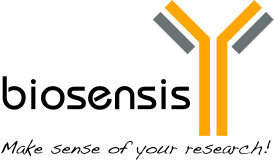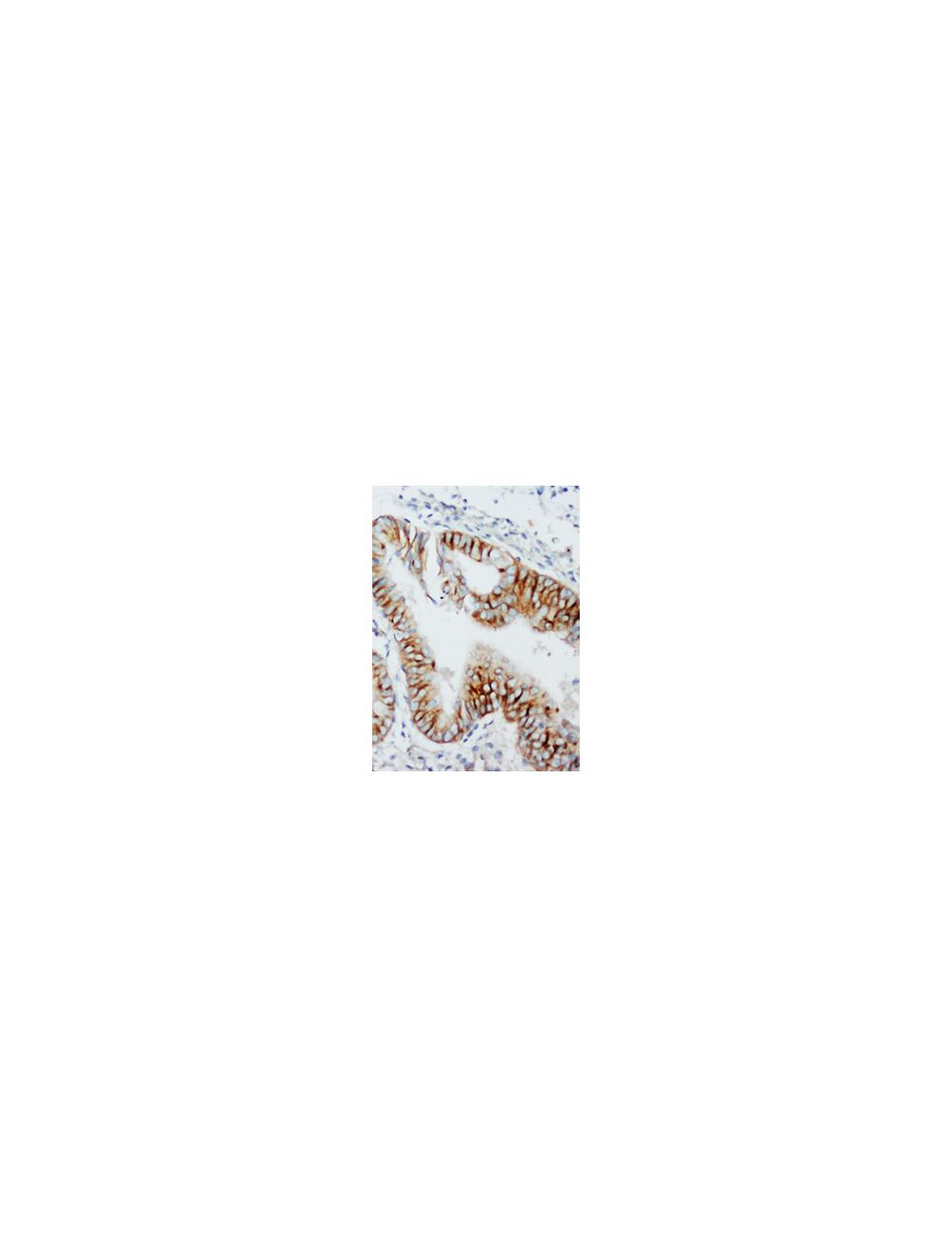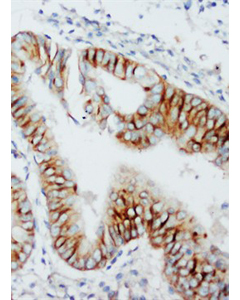C-C Chemokine Receptor type 5 (CCR5), Rabbit Polyclonal Antibody
As low as
US$427.00
Only %1 left
Catalog Number
R-1043
- Product Name C-C Chemokine Receptor type 5 (CCR5), Rabbit Polyclonal Antibody
- Product Description Rabbit anti-C-C Chemokine Receptor type 5 (CCR5) Polyclonal Antibody (Unconjugated), suitable for WB, IHC-Frozen, IHC-Paraffin-embedded.
- Alternative Names C-C CKR-5; CC-CKR-5; CCR-5; CCR5; HIV-1 fusion coreceptor; CHEMR13; CD195;
- Application(s) IHC-Frozen, IHC-Paraffin-embedded, WB
- Antibody Host Rabbit
- Antibody Type Polyclonal
- Specificity The specificity of this antibody has been confirmed by WB and IHC against the antigen. Human; expected to react with rat and mouse due to sequence homology
- Species Reactivity Human, Mouse (Predicted), Rat (Predicted)
- Immunogen Description A synthetic peptide (PCQKINVKQIAARLLP) corresponding to a region (19-34) from the N-terminus of human C-C Chemokine Receptor type 5. To enhance the immunological response, this peptide was coupled to carrier protein BSA.
- Conjugate Unconjugated
- Purity Description Affinity purified on antigen column
- Regulatory Status For research use only.
Product Info
- Product Description Rabbit anti-C-C Chemokine Receptor type 5 (CCR5) Polyclonal Antibody (Unconjugated), suitable for WB, IHC-Frozen, IHC-Paraffin-embedded.
- Application(s) IHC-Frozen, IHC-Paraffin-embedded, WB
- Application Details Immunohistochemistry (IHC) and Western Blotting (WB). A concentration of 0.1-0.5 µg/mL is recommended for WB. Human CCR5 has a predicted length of 352 residues and MW of 41 kDa. A concentration of 0.5-1 µg/mL is recommended to detect the protein in formalin fixed and paraffin embedded tissues. Heat mediated antigen retrieval is recommended. Biosensis recommends optimal dilutions/concentrations should be determined by the end user.
- Target C-C Chemokine Receptor type 5 (CCR5)
- Specificity The specificity of this antibody has been confirmed by WB and IHC against the antigen. Human; expected to react with rat and mouse due to sequence homology
- Target Host Species Human
- Species Reactivity Human, Mouse (Predicted), Rat (Predicted)
- Antibody Host Rabbit
- Antibody Type Polyclonal
- Antibody Isotype IgG
- Conjugate Unconjugated
- Immunogen Description A synthetic peptide (PCQKINVKQIAARLLP) corresponding to a region (19-34) from the N-terminus of human C-C Chemokine Receptor type 5. To enhance the immunological response, this peptide was coupled to carrier protein BSA.
- Purity Description Affinity purified on antigen column
- Format Lyophilized with 5 mg BSA, 0.9 mg NaCl, 0.2 mg Na2HPO4, 0.05 mg Thimerosal, 0.05 mg NaN3
- Reconstitution Instructions Spin vial briefly before opening. Reconstitute in 100 µL sterile-filtered, ultrapure water to achieve an antibody concentration of 1 mg/mL. Centrifuge to remove any insoluble material.
- Storage Instructions At least 12 months after purchase at 2-8°C (lyophilized formulations). After reconstitution, aliquot and store at -20°C for a higher stability. Avoid freeze-thaw cycles
- Batch Number Please see item label.
- Expiration Date 12 months after date of receipt (unopened vial).
- Alternative Names C-C CKR-5; CC-CKR-5; CCR-5; CCR5; HIV-1 fusion coreceptor; CHEMR13; CD195;
- Uniprot Number P51681
- Uniprot Number/Name P51681 (CCR5_HUMAN)
- Scientific Background C-C Chemokine Receptor type 5 (CCR5) is a G-protein coupled receptor for a number of inflammatory CC-chemokines including MIP-1-alpha, MIP-1-beta and RANTES. CCR5 and its ligands may also play important roles in the control of granulocytic lineage proliferation or differentiation as well as pathogenesis of viruses such as HIV.
- Shipping Temperature 25°C (ambient)
- UNSPSC CODE 41116161
- Regulatory Status For research use only.

 1800 605-5127
1800 605-5127 +61 (0)8 8352 7711
+61 (0)8 8352 7711

